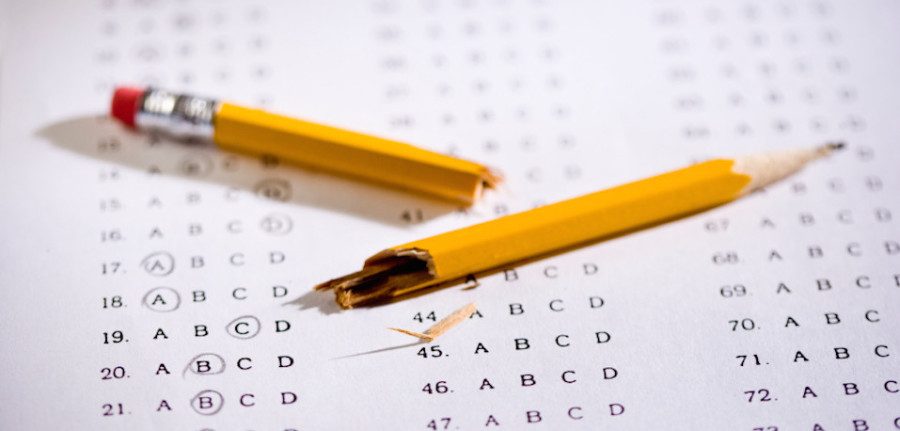The cons of SATs
Idaho Standards Achievement Tests are used to track the progress for students’ learning. They are split up into three parts and given towards the end of the year. It’s used to measure if students are ready for college and schools progression on learning.
They also take up time and over regulate what teachers are allowed to teach. Teachers must follow closely to what the state allows them to teach in order to prepare their students for what they are going to test on. It cuts back creativity and hinders a student’s learning potential. Students’ knowledge and capabilities should not be measured based on a test that we are not usually prepared for. Some students may exel in the classroom but do poorly on standardized testing because they are not familiar with the format or they develop test anxiety.
These tests take up hours of time, staring at a screen in a small classroom. They become tedious and difficult for students to be fully ready and in the right mindset. Brenda Brenda Koenig, a writer of Smile Politely said, “The emphasis on testing, especially in the poorer public schools, has virtually eliminated student-centered and active learning, and drastically reduced the amount of time teachers can teach history, science, geography, art, music, and physical education, among other ills.”
A federal study found that about a third of states lowered their academic proficiency standards recently. ISATs are what show the federal government how well we are doing in school. Based on Idaho’s test scores they chose to lower our testing standards, like lowering the score for receiving proficient on an ISAT. This makes our standards lower than other states and makes our schools lousy in comparison. Students who are getting higher test scores still have their levels lowered because these tests don’t represent our schools properly. The whole system is off.
Standardized testing also becomes political. Charter schools and public schools are competing for the same federal funds. Educators and politicians have to look at test scores to decide. Derrick Meador, a school administrator in Oogolah, Oklahoma said, “Some opponents of testing argue that low-performing schools are unfairly targeted by politicians who use academic performance as an excuse to further their own agendas.”
Instead of being an accurate representation of our intelligence, they are a measurement of how many tutors you can buy and how many books you can read, so that you can increase your score and college options. There are so many other ways to measure our intelligence and learning capabilities that do not include this loss of creativity and added stress.

“You don’t find the happy life, you make it.” by Thomas S. Manson. This is a quote that Kelsey Griffin lives by. Kelsey is a junior this year at...










Katie • Mar 4, 2021 at 1:06 pm
I agree with this article, we shouldn’t have to feel pressured by test. Also i agree that we shouldn’t focus all are knowledge on one test. It’s stressful we should be more focused on gaining are knowledge and expanding are creativity.
Emmalee H • Feb 4, 2021 at 3:21 pm
I totally agree with this article, we shouldn’t put all our knowledge and hard work into one test. Students shouldn’t have to feel pressured or anxious about a single test, especially by how important the test is. Our future shouldn’t rely on one test.
Reese Boyd • Mar 2, 2020 at 10:09 am
I agree and disagree with this article. Sure, people get test anxiety and we shouldn’t put all of our hard work on one test, but if we start taking it off, then colleges might overlook us because the people who did take this test actually beat you because you didn’t take it at all. So, while I agree that we shouldn’t put stress on only one test, we also shouldn’t not take it because we could get overlooked for others.
Davian Montes • Feb 28, 2020 at 10:01 pm
I agree with the article and every argument that is brought up. Some areas are overlooked. For example students gifted in non-traditional areas of will not display those strengths on the SAT exam. The tests also create completion between not only students but, teachers, and even school districts.
Emanuel Munoz • Feb 27, 2020 at 1:22 pm
I agree with this article because I think students shouldn’t feel pressured because of tests. Students should be free to learn without feeling pressured by tests.
Miles Toussaint • Feb 27, 2020 at 1:07 pm
I agree with the point that this article is making. We must understand that administrators need to see their schools’ progress, thus the testing. However, a possible solution to this is to change the standards of how testing is formatted in our schools. This could allow more room for creativity in the classroom as stated in the article.